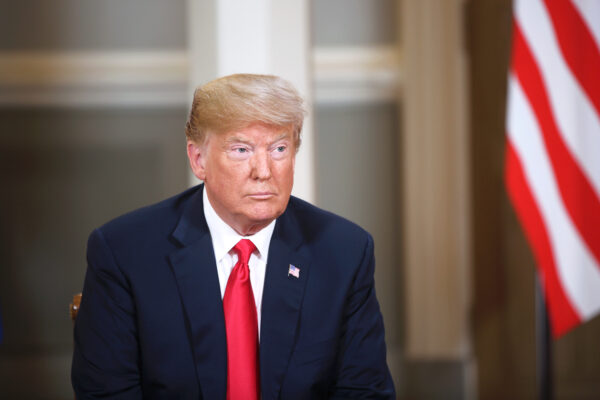
Nearly four years of Donald Trump’s corruption and incompetence have nearly numbed me, but when everyone from National Review, which has often given the president the benefit of the doubt, to Robert Mueller, the former director of the FBI who investigated Russia’s interference in the 2016 election, speaks out, we ought to pay attention.
Friday afternoon, Trump commuted the forty-month prison sentence of his longtime accomplice Roger Stone, who had been convicted of witness tampering, obstructing an investigation and lying to Congress.
Indefensible
Mueller — who has seldom commented on his investigation and certainly didn’t write op-eds to The Washington Post before — calls Stone a “central figure” in Russia’s attempt to influence the outcome of the last presidential election.
He communicated in 2016 with individuals known to us to be Russian intelligence officers and he claimed advance knowledge of WikiLeaks’ release of [Democratic Party] emails stolen by those Russian intelligence officers. … He remains a convicted felon, and rightly so.
National Review calls the pardon “indefensible”:
It is another indication of [Trump’s] perverse, highly personalized view of the criminal-justice system — and another reminder of the loathsome characters he’s surrounded himself with his entire adult life.
Mitt Romney, the only Republican senator who voted to convict the leader of his party based on Mueller’s findings, tweets:
Unprecedented, historic corruption: an American president commutes the sentence of a person convicted by a jury of lying to shield that very president.
Pattern
And yet it’s hardly surprising.
When Donald Trump pardoned Joe Arpaio in 2017 before the former Arizona sheriff could even be sentenced for criminal contempt of court, it reminded me of that adage of South American dictators: “For my friends, anything. For my enemies, the law.”
Since then, Trump has pardoned:
- Rod Blagojevich, the former governor of Illinois who solicited bribes to fill the Senate seat vacated when Barack Obama was elected president in 2008.
- Bernard Kerik, who served as police chief of New York under Mayor Rudy Giuliani, now Trump’s personal lawyer, and who accepted bribes during his tenure as interior minister in the Coalition Provisional Authority of Iraq.
- Scooter Libby, a Republican operative who leaked the identity of a CIA agent in an attempt to shield the George W. Bush Administration from criticism.
- Clint Lorance, an Army lieutenant who was court-martialed and sentenced to nineteen years in prison for deliberately killing civilians in Afghanistan.
- Michael Milken, a financier and philanthropist who violated securities and tax laws.
- Kristian Saucier, a sailor who took photos of classified areas inside a submarine.
- Dinesh D’Souza, a right-wing provocateur who broke campaign finance laws.
Needless to say, the president of the United States doesn’t have pardon power in order to keep his friends out of prison.
But we know this president doesn’t care about constitutional norms or the rule of law.
